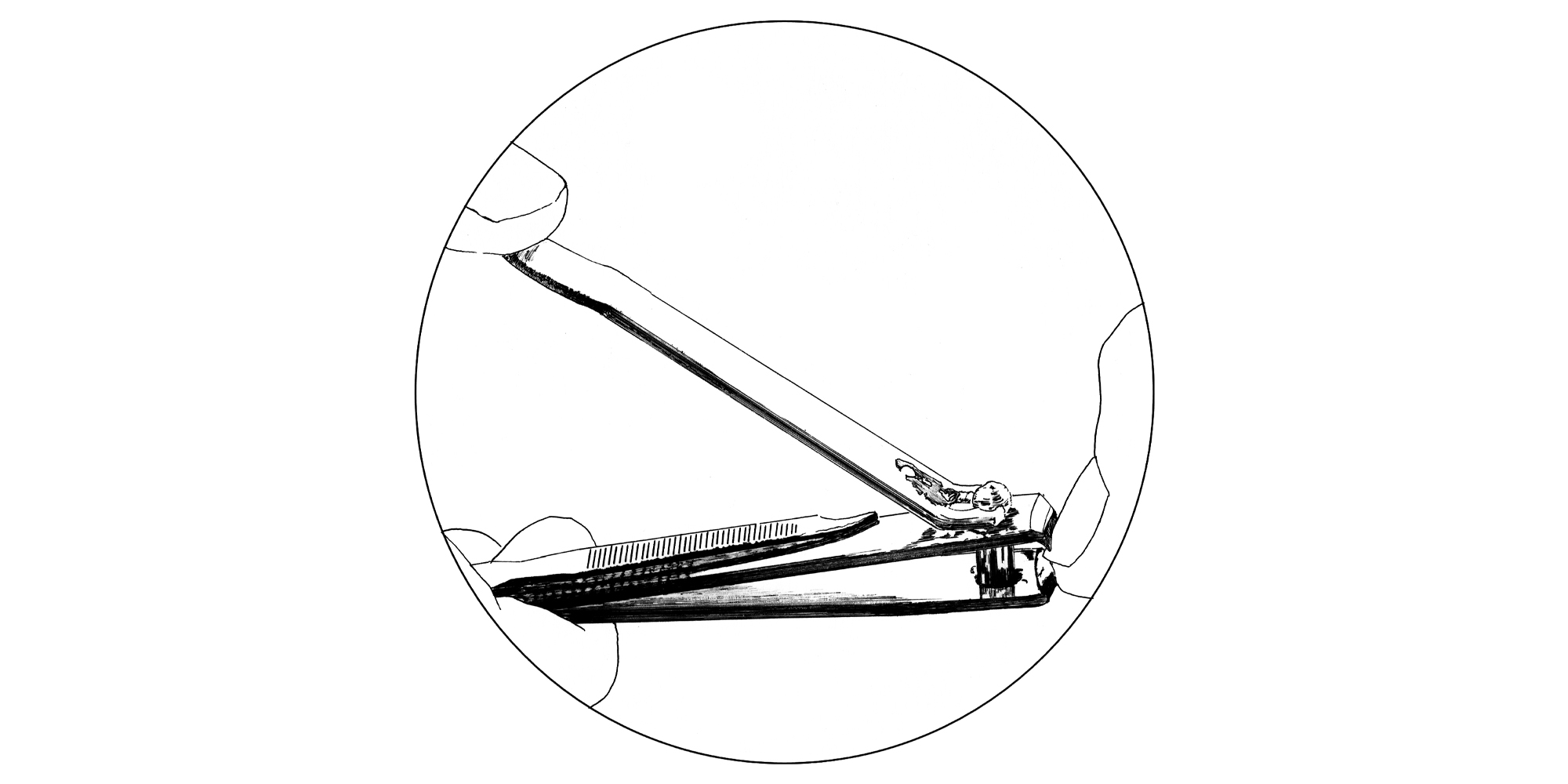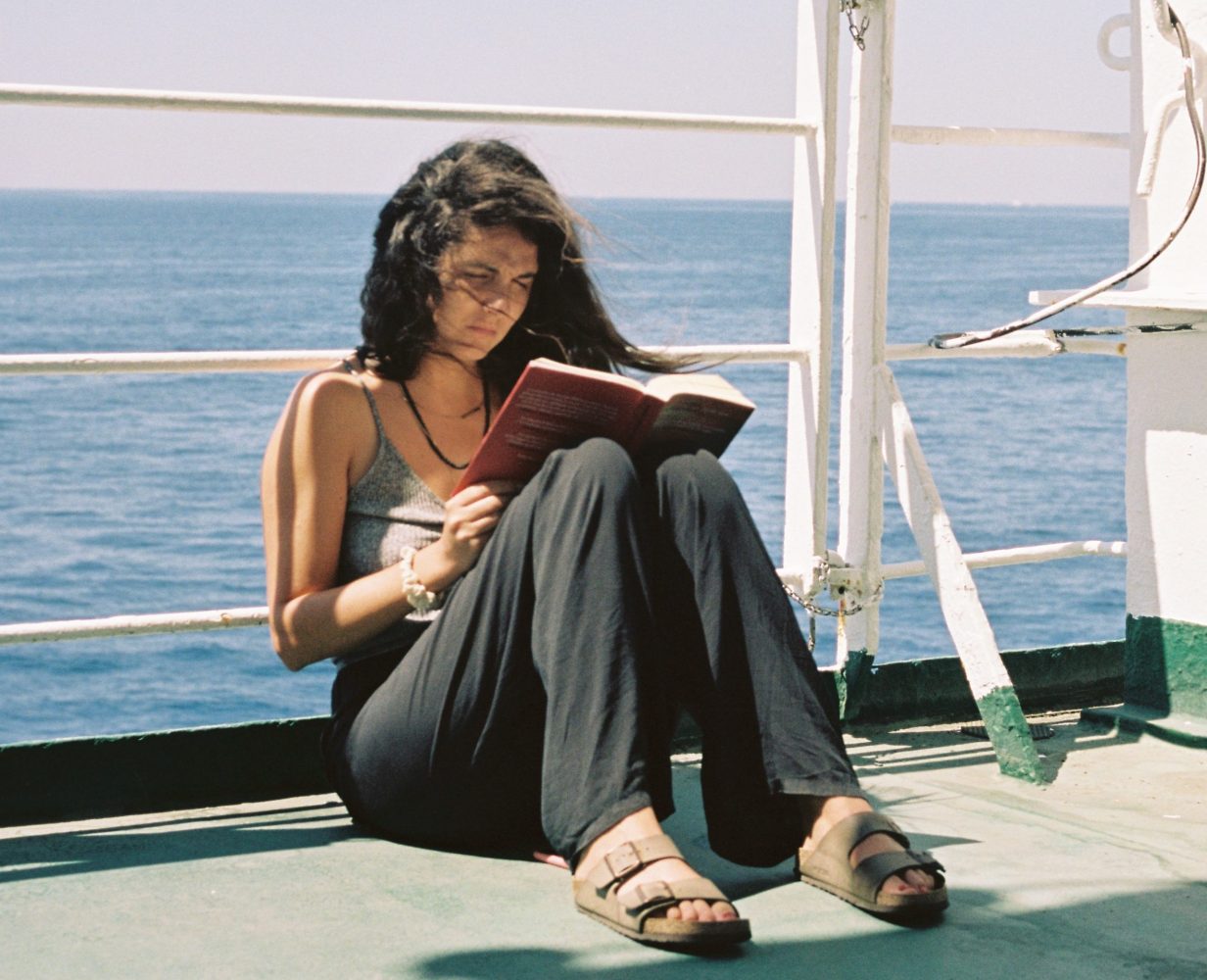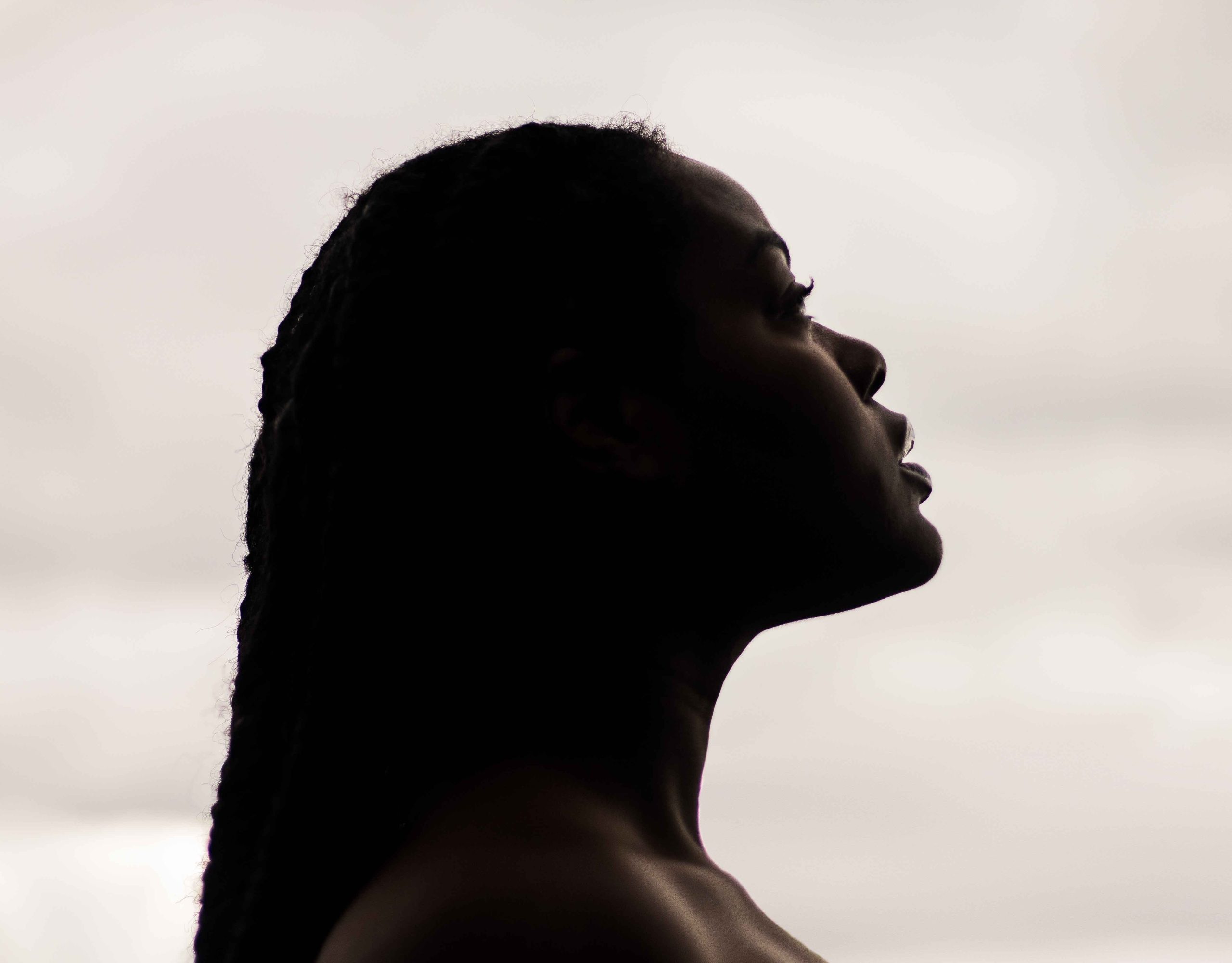Interviews
A World Where Blackness Is a World of Possibility
Hafizah Augustus Geter reclaims her origin story in the memoir "Black Period"

As a poet, Hafizah Augustus Geter understands the power of language to shape places, lives, and possibilities.
In her debut memoir, The Black Period: On Personhood, Race, and Origin, she stands on a precipice, gazing out on the story she lives inside of—a “story begotten by White America.” That story, of course, is painted over another people’s history, and is rife with obscurations, lies, and erasures which threaten Geter’s survival as a Black queer woman. But, she writes, “scrape the picture back with one of my father’s palette knives, and the world becomes splashed in color again.”
Through her father’s artistic example, her mother’s love, the care and nurturing of her communities, and lessons drawn from history, Geter is on a mission to resurface, revise, and reimagine her world. The result is a work of aching beauty, formal innovation, and radical vision. Geter and I spoke about beginnings, abolition, the Afro-future, and the practice of hope.
Nadia Owusu: I wanted to start with a question which throbs throughout the book—the question of origins. You ask, where does a history start? What is the origin story of this book, and how does that story connect with the spiritual and political journey it chronicles?
Hafizah Augustus Geter: My first book was a book of poetry called Un-American and it was also about grief and origins. When I came to nonfiction, I was trying to do things I couldn’t do in poetry because they required more space. I was asking what else I could do with language. I wanted this new book to be a hybrid, collaged, kind of thing because no one, but especially not Black people, can live in memoir alone. Our lives are political historical, spiritual. My book talks about being raised by a Muslim Nigerian woman and a Black man from the South. I wanted to understand the way disability runs through Black and African families. I was trying to understand my own queerness. We all have many complex stories, but we’re often told that we have to pick just one, and that leaves us in a position of alienation. In reality, we’re constantly simultaneously in the present moment, remembering the past, and thinking about the future
When I came to this book, I was tired of being sad. My mother had been dead for over a decade. I’m out of the closet. I’m married. I’m at an age where I have no choice but to confront things—about my body, the past, my grief. There’s a chapter in the book that examines the way Islamophobia impacted my beliefs about grief.
My mother died two years after 9/11. The hysteria that followed made it feel like you couldn’t grieve a Muslim life without being a traitor. And it made it complicated for me, especially living in South Carolina and going to high school near the largest military training base in the country. And so finding space to grieve was hard. Even people who loved me would say, “Well, your mother’s not going to go to heaven.” So I came to understand that grief is a political condition. Now, with COVID, I think more people understand what that means. But it doesn’t have to be like this.
Prison abolitionist organizer Mariame Kaba talks about how one of the purposes of organizing is to show us who we’re supposed to be mad at, and part of writing this book was me asking, where did all this shame come from? Shame is one of the tools of white supremacy.
NO: The book opens at the Grand Canyon, with you contemplating the bonds between Native and Black American people. This starting point seemed to be a gesture against historical erasure, against further theft and separation. And you build on these themes throughout the book, shedding light on systems of inequity and how they impact communities of color, queer people, and differently abled people. You write about how our liberation stories are connected.
HAG: This book is very concerned with the idea of time. At the Grand Canyon, you’re looking at time. You can see the beginning of the earth and that is fantastical to me. It’s one of the most miraculous things. But, widen the aperture, and you see that part of why it’s so beautiful is because the government protects it from pollution. But, who is being protected and who is not being protected? How wide can your aperture go?
I’m at an age where I have no choice but to confront things—about my body, the past, my grief.
The community that lives at the bottom of the Grand Canyon—the Havsuw ‘Baaja—are the first people documented in North America. If you allow yourself to see, there are all these layers of stories. But we live in a country where people say, that’s not my story, what happened here is not my fault, not my problem. I don’t see connection as a burden, though. Being obligated to something isn’t a burden. I wanted to really grapple my own complicity as someone who lives on stolen land.
Behold: Beauty and violence. Let’s hold both. We seem to be so afraid of history. The more I looked back, the more violence I found, yes. But also, with every step of that violence, you see people pushing back and working towards a different world.
NO: This seems connected to your notion of the “Black Period.” You describe it as a “a state of mind, a position, a duration.” Can you speak about what a “Black Period” is, and how it relates to Afrofuturism?
HAG: One of the books’ preoccupations is naming. In order to tackle anything, you have to give it a name. So, in search of an alternate origin story, I needed to name what I was searching for. I came to the name through Goya’s Black Paintings, which my father loves. They’re terrifying, but my father said, “Do you know how hard it is to paint in blacks?” So he sees something miraculous in the series of paintings that are, essentially, an exploration of the dark heart of man and the things that plague us. For my father, there was light in that darkness. And that’s what I’m looking for. That’s how, not just Black people but communities of color, raise their kids. You eventually have to make sure that your child knows that the world is trying to kill us. But, what communities of color have in common is the way we attend to our loved ones, our elders, and our history. And so, what can we do with that?
The Black Period is where we live in possibility. It’s where we keep creating new futures. I definitely see my work as Afro-futurist. I see my father’s work as Afro-futurist in so many ways.
NO: Throughout the book, you give examples of how you saw the Black Period modeled by the people in your communities, and particularly by your parents, who I really loved getting to know through the book. You write movingly about how their dreams, love, and imagination gave you and your sister possibilities that America tried to deny you. And, your father’s art is featured in the book.
HAG: This book allowed me to see my parents as people, to see how radical they were. I grew up in the 1990s, 30 years after the Civil Rights Act. My sister and I were the first generation that that could participate in a world with white people and not have to clean it or be subservient to it. My parents didn’t have a roadmap, but we celebrated Kwanzaa. They used art. They gave us community. I think this also speaks to the ingenuity of Black people—just constantly making it work.
Shame is America essentially testing how long its history can last.
The book contains 66 of my father’s artworks. I knew they had to be there from the beginning. I grew up with art everywhere because of him. I don’t even know how to begin to tell a true story of my life without including the art because I can look at certain of his paintings or drawings and remember what house we lived in, what my mother’s hair cut was. I can remember so much of the quality of my life through his work.
NO: In addition to your parents’ example, you argue that creating a world without violence requires police and prison abolition. What does abolition mean to you, and how do abolitionist ideas inform your vision of the Black Period?
HAG: Everyone should read Mariame Kaba’s We Do This ‘Til We Free Us. It’s absolutely amazing. Abolition is rooted in building. We all want to feel safe, but right now, the only option we’re given for safety is a hammer, and that’s the police. But a hammer breaks everything. And abolition is saying that instead of a hammer, we want health care, we want education, we want food security. Those things make us safer than the police do because the police create violence. We don’t have all the solutions yet. The point is to try everything because we know that what we have isn’t working. What abolition asks of us is to work in community to understand all the things that are possible.
NO: I want to return to what you said about shame. You write about how trauma accelerates the biological clock, and how shame contributes to that. Part of your journey toward the Black Period is claiming the fullness of yourself including your queerness and you write, “It was near impossible to fight for anyone from inside a closet, especially myself.” I thought that was such a powerful way of phrasing it and then you also quote Angela Davis” “We oftentimes do the work of the state in and through our interior lives.”
HAG: We are constantly being surveilled and policed, by our phones, our jobs, people in our lives, the state. Shame becomes a self-surveillance. Shame is America essentially testing how long its history can last.
Around queerness, shame is tied to a patriarchal heteronormative agenda to promote capitalism. Because when you police people’s sexuality, you get to decide how people participate in the workforce. It’s all connected. So, we have to ask, Who is my shame in service of? Do I feel shame because I did something or because I just feel wrong?
One of the tenets of abolition is creating a world where people have everything they need, including beauty and the conditions for beauty.
Internalized homophobia and anti-Blackness, for example, can be deadly. Through shame, you’re essentially allowing yourself to be deputized by the state for policing, and you’re policing yourself, so they can essentially run this machine on automatic. And then, when you have so much shame, you’re also willing to punish others. And so, part of writing the book was trying to see how shame is a political condition too.
NO: To me, the work you’re doing in this book—the undoing, the revising—is profoundly hopeful. You write that Black hope is deadly to racist capitalism.
HAG: Yeah, it’s so easy to just say that this is the end of time and there’s nothing we can do. But that’s not true because the fact that the world is not over already—that we’re still standing—is a testament to the work people of color are always doing. When you look at all these oppressions, it seems overwhelming. There are just so many things coming for us, but they are all tentacles of the same head. And so that means that every little action we take is chopping away at that same monster. I think that is a very hopeful space.
One of the tenets of abolition is creating a world where people have everything they need, including beauty and the conditions for beauty. And, when you think about, for example, the period in which Black people were enslaved: From the very first day to the day we were freed, every single day someone believed we would get free. I mean, that is just a wild sense of hope. That kind of hope is a map because, when you hope in community, it forces you into action, and then it starts changing the world. And so, I try to use my writing to help communicate the messages that are coming from activists. I try to be a mouthpiece for the movements.









